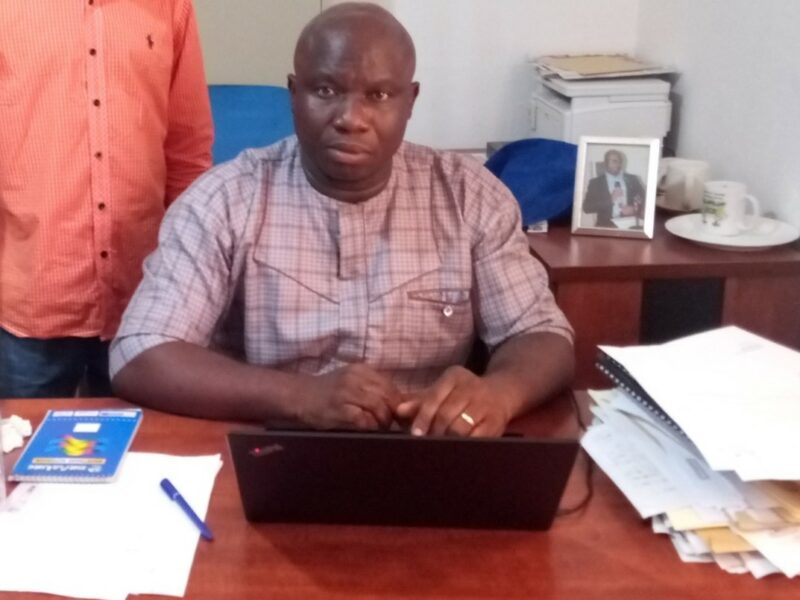Civil Societies End Confab on Social Protection in Freetown
A two day workshop on Human Rights, Social Protection, advocacy as well as research ended last Saturday at the British Council auditorium in Freetown. The training which was organized by a non-governmental organization, Civil Society Platform for Social Protection (CSPSL) brought several NGOs, CSOs Media and other professional representatives together to discus pertinent issues around their circle of operation.
CSPSL is a coalition of civil society organizations working with the government of Sierra Leone, UN, Agencies, Private sector, and Africa Union to promote Social Protection related issues in the country.
The purpose of the workshop was to build professional National Networking of NGOs, and media representatives for effective advocacy and social protection. The training also focused on experience sharing and review on policies approach on social protection within and outside Sierra Leone. The Civil Society bodies reached a consensus on future directions and strategic priorities in advocacy for social protection, enhancing people’s skills, team spirit and teamwork.
In his statement, the Director of CSPSL, Rev. Dr. Augustine Lansana said the right to social protection is essential human right and that people must be enabled to access essential services of security. He noted that, any country that does not achieve it social protection is unable to achieve the Millennium Development Goals. He also said it was paramount for Sierra Leone to gain direction in social protection to ease the rate at which people’s social securities are being jeopardized. He said the Social Protection Bill which is currently in Parliament, if passed into law will yield development as the people will be more informed to understand the professional national organizations that are participating in the workshop.
He maintained that, after the workshop, professional national participants of the networking on Social Protection will work concertedly to meet the demands and needs of the populace.
Rev. Dr. Augustine Lansana disclosed that, the Right to Social Protection emerged in 2006 in Africa. According to him, in that year 13 African countries represented by over one hundred delegates assembled in Zambia and agreed on the Livingstone Declaration. He said, later the Africa Union endorsed the document and declared that Social Protection was a basic Human Right. He noted therefore that ‘Social Protection’ refers to an essential public services aimed at helping the citizens cope with risk, vulnerability and hunger, adding that it was an obligation that the government must honor something that the citizens are legitimately demanding.
In his presentations, the facilitator, Mohamed Sidie Sheriff who doubles as World Bank representative said social Protection was a human rights concern and should be given the utmost priority it deserves. He related the issue of Social Protection as a fundamental interest of the citizens to the theory of Thomas Hub. According to him, this theory states that, the government/state goes into an unwritten agreement with the people at all times. He said, in that context the citizen’s performing their own responsibilities and on the other side the state fulfills its own duties. He maintained that if each and every party equally performs, peace, stability and development will be achieved but if either withdraws their contributions, there will be anarchy or state collapse. He maintained that this Social Protection supersedes this whole theory.
The facilitator went on to explain how advocacy can be conducted to achieve Social Protection. He said, there were many skills acquired to conduct advocacy. According to him, research was very important in propagating advocacy. He said, advocacy required extensive activities to raise the profile of an issue from dormancy, trivial to prominence, essential as well as awareness. He also said that advocacy can lead to reforms, developments and positive change.
Further the World Bank representative comprehensively discussed the importance of monitoring and evaluation and how it can be used in projects or advocacy. He said, for example, in monitoring, one uses indicators while in evaluation a person applies comparators.
In an exclusive interview with Mrs. Melrose Colay, a participant representing a non-governmental Organization, Initiative for Changing Lives for Ultimate Disability Empowerment ( INCLUDE), she said, the training was interesting, that she was able to grasped enough knowledge about social protection and how it can help the vulnerable people in society.
Stay with Sierra Express Media, for your trusted place in news!
© 2012, https:. All rights reserved.





